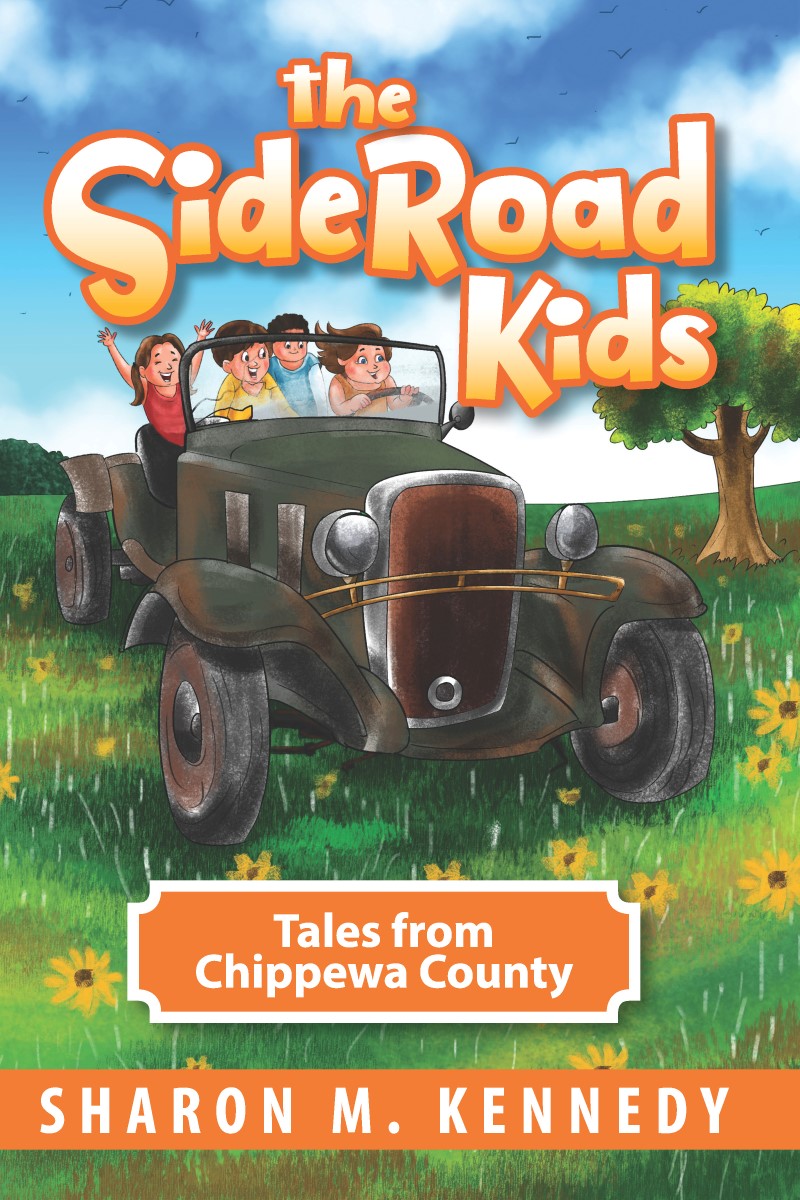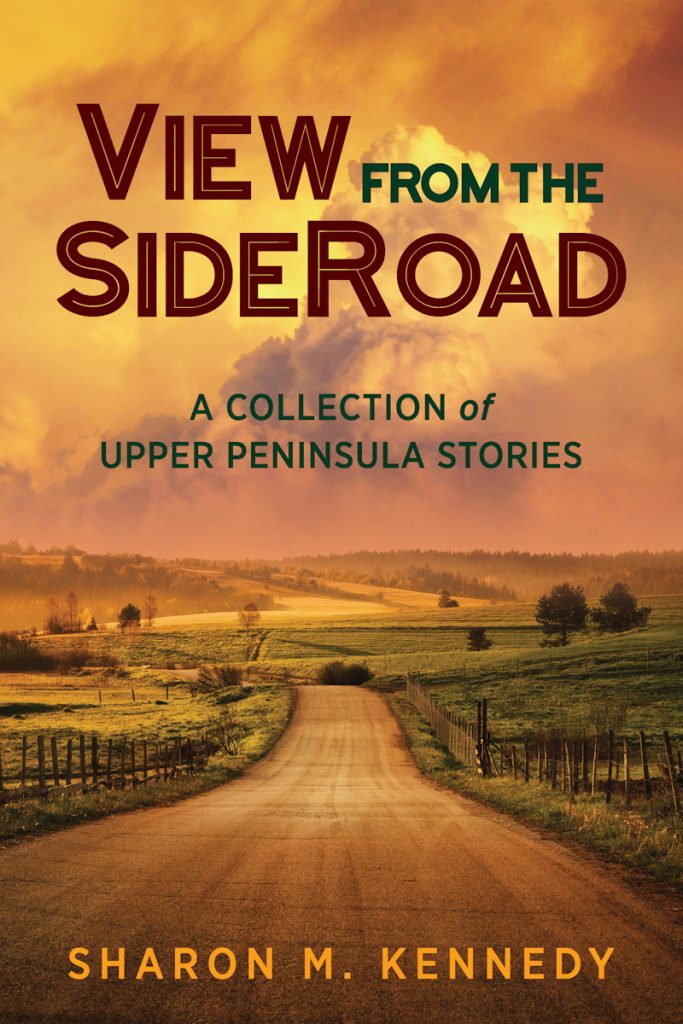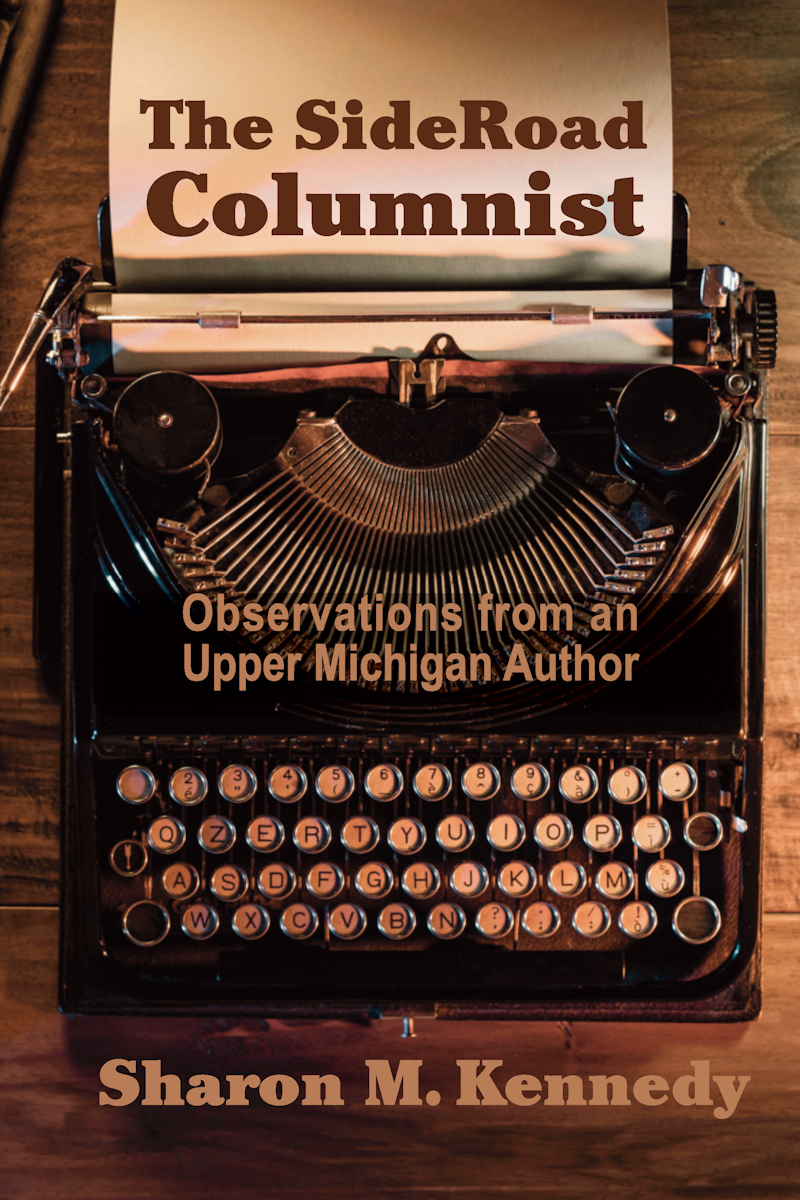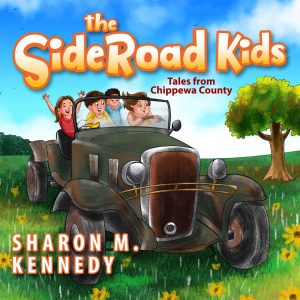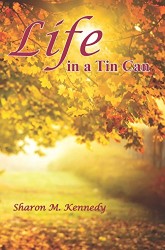I sat in the haymow and watched the sky gather black clouds until the rain came, and then I climbed down the ladder and ran barefoot through the fields of my father. The grass clung to my feet as I ran through buttercups and purple clover. I ran faster and jumped and shouted for the pure joy in being alive. For you, dear Dad, for you I will run through your fields. For you I will raise my face to the heavens and drink the clean rain. For you, too, my cheeks will grow wet from my tears. For you will no longer raise a scythe to this grass, no longer hitch the rake to the old Case tractor and cut the hay, no longer pick wild raspberries growing alongside the road. But I’m still here, Dad. I’m still here, and I will do it for you.
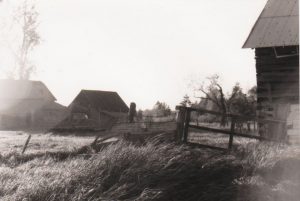
All gone now
It’s been 41 years since we lost Dad. Don’t believe people when they tell you one year is enough to mourn, for mourning is nothing compared to the remembering. The remembering and longing never go away. They just creep into a back corner of your mind and wait until you grab an old shirt hanging on a rusty nail or slip into a pair of tall rubber boots. Then it all comes back, even to the familiar scent of Lifebuoy on a scrubbed neck or the honk of a Sunday morning horn saying, “Hurry up or we’ll be late for church.”
I see Dad everywhere. I see him on the tractor as he plows the fields. I see him as he works the trashing machine. I see him in the barn as he milks the cows. But his fields stand fallow now, no longer waiting for the seed to grow into rich, fragrant oats or hay. The tractor waits in the field, waits and grows rusty as tall grass surrounds it. The barn is empty, old and falling down, but yet it, too, waits for the dead cows to come home and be milked. There’s an old horseshoe nailed to the barn door. The door swings on one rusty hinge, waiting to be repaired. The ceiling has sunk so low only the smallest calf could grace a lonely stall. There is evidence of you everywhere, dear Dad, from the handmade chop boxes worn smooth by the cows downing their chop, to the wire wrapped around the gate and latched to a steeple. Shaky at best, but adequate enough to keep the cows from wandering.
The chicken coop caved in years ago, but I remember when I used to run and check for eggs. The coop always frightened me for it was low and dark, and I was afraid one of the hens would be setting and chase me. I remember the time a tomato plant grew outside the henhouse door, and I didn’t want to pick the tomatoes because of where the seed had probably been, but you, Dad, you laughed and popped a ripe tomato into your mouth. “Best tomato I’ve ever tasted,” you said. Then there was the time you ordered 50 hen chicks and when they were older, they turned into 50 mean roosters and chased me from the barnyard to the house. When I reached the porch, you scooped me up and held me close as you kicked off the traitors.
Remember the Corvair? It was the only new car you ever owned and regardless of what that Nader fellow said, it was a wonderful car, a jewel of a car. Remember, Dad? The exterior was as white as fresh snow on a green pasture. The interior was as gray as a mourning dove, and the seats as smooth as your clean shaven face. The smell—oh the glorious smell of the leather. Who could forget that? Remember how Mom loved to drive it, venturing no farther than the end of the sideroad for fear the sheriff would catch her and chastise her for driving without a license? How we all laughed when she put on her fancy hat and grabbed her purse and told us she was going for a spin because we all knew she would spin less than a mile. You encouraged her to take a driver’s test, but she refused. Like the rest of us, she depended upon you for transport.
Remember the summer I came home, the summer I spent waiting? Lord, I don’t know what I was waiting for, but it was enough merely to wait in languid anticipation of better things to come and you did not ask questions. Detroit faded into a whirlwind kaleidoscope behind me as I crossed the Mackinac Bridge and the Upper Peninsula beckoned. I returned to you and Mom and the farm where I had lived my childhood. I returned to wait and, perhaps, to hope.
I was 30 then, had just turned 30, and maybe that had something to do with it. Who knows? Who can explain the mysterious longing to return to a birthplace, to loved parents? Not I, certainly not I. Not then, not now. I remember that summer as if it were yesterday, but many years have passed since then. Everyone said I was a fool, that I would return to the city within a week, that I would find things changed and be disappointed. Friends wagged their fingers and said vacation there, don’t move there. They preached and admonished and counseled, but I did not hear. How can one hear words of caution when memories of yesteryear whisper until they shout, come home, come home? I was blind, deaf, and heedless of anything except the need to return.
I found things much as I had left them. The dirt road was still dusty. A few Herefords grazed lazily in the fields. Ferns and clover and wildflowers grew thick on either side of the road. The bush behind the barn was full of maple trees, spruce, tamaracks, and white pines, and the pastures were dotted with milk cows. My friends were wrong, for outwardly, nothing had changed. Peace mingled with beauty, spreading tranquility throughout my being as surely as the evening fog spreads itself over the land.
My God, my God, I was home. I smelled the farm even before I saw it. I breathed of the stuff that had made me what I was, who I am. It was all there. Nothing had changed. Wheat rose to greet me, the golden heads dancing in unison to a gentle wind. Late blooming roses perfumed my nostrils, chasing Detroit’s odor farther north, far into the great icy waters of Lake Superior less than four miles away. Even the endless dust filling my car carried an aroma all its own, and I knew just as surely as I knew I lived and breathed, that I was home.
There you were. You and Mom waving from the porch and wearing the smiles only parents can wear when an offspring returns. Smaller than I remembered, more weathered, more gray, but joyous. You walked with a cane now, not a real cane, but some heavy old tree branch you had worn smooth, and you, like the old house, listed to one side. You hobbled behind Mom, taking your time on the steps and keeping one hand on the railing. Mom was already opening the Chevelle’s door. I hugged you both and blinked back tears because, when I looked closer, you had grown old.
We talked, oh Lord, how we talked those first few weeks. Far into the night we rattled on and on about people who were dead and alive and half-dead and half-alive and those who were somewhere in between. The kitchen table was our post, and over endless cups of hot, black tea and fresh green onion sandwiches we caught the past years and blew life into them. Now and then Mom joined us, but it was her custom to watch television, either a good show from Canada or a Tiger’s baseball game while you and I gabbed. Sometimes she watched the eleven o’clock news, and other times she retired early, and you turned off the TV and the living room lights, tossed more tea in the pot, and it would be past two in the morning before we turned in. Is there anything, anything more beautiful than a father and daughter sharing the wee morning hours with soft voices caressing years long past?
It’s not the mourning the living have to live with. It’s the memories. Especially when you grew up on your Dad’s farm and everywhere you look he’s there. Every machine, every tool, every milk can, every hoe, every pitchfork, every hammer, every nail, every piece of binder twine. That’s what you have to live with. You have to live with his mistakes, too, like using solid oak doors from the house for the pig pen because there was no lumber and no money to buy any. Or seeing an antique cast iron tub with fancy claw feet being used as a water trough because the tub was handy and there wasn’t any other use for it because the old house had no bathroom so why would we need a tub? Or watching rust gather on plows and balers and mowers and manure spreaders because the field was the only building large enough to hold them.
I walked around the farm and saw washtubs full of rainwater, weed trees growing out of old cars and trucks, piles of rusty junk iron you were going to find a use for one day. I saw fences that were constantly being repaired now resting on the ground and wondered how many times your hands pulled the wire tight and your fingers got caught on the barbs. I saw the old house, vacant for 40 years and wished with all my heart you had fixed it up instead of buying a fancy new Marlette mobile home with all the modern conveniences, nice enough, but not home. I saw the downed poplar, felled by an autumn wind coming off Lake Superior. That old tree must have measured over 200’ tall. The swing you made for me long ago had rotted and only frayed bits of rope hung from the tree’s branches. Remember how you pushed me—higher and higher until I thought I would touch the clouds?
Winters were hard on the farm, but you never complained. You carried water from the wellhouse to the barn when the ground was too icy for the cows to walk to the trough. Remember how you always leaned your head against the cow’s flank when you milked her? Sometimes I watched you and wondered where you were. You seemed so far away, so deep in thought. Once I thought I saw tears on your cheeks. When you turned to me, I asked if you were crying, and you said no. I didn’t believe you then any more than I believed you when Gram died and you stood by her coffin and the same phantom tears were clearly visible.
Grief and remembering. They’re everywhere and just when you think you’re over them, well bam, you realize it’s all a sham and you’re not over anything. You long for just one more minute, one more second to curl your arms around Dad and tell him you love him. Just half a second. Just any time at all. Then you pull yourself together and get on with your work, work of any kind that will take your mind off the memories. And yet you can’t help but look up and hold your head still, listening as in the distance you hear a cow bell ring on a warm summer day and wonder if maybe, just maybe, Dad’s heading the cows for home one last time and you run to the barn, run past the heaps of junk, past the wellhouse, past the cat sunning itself, run until you jump the rotted fence and close your eyes and wait and wish with all your heart you could see him one more time.
Grief and remembering. Sometimes they’re all that keep the living alive.





